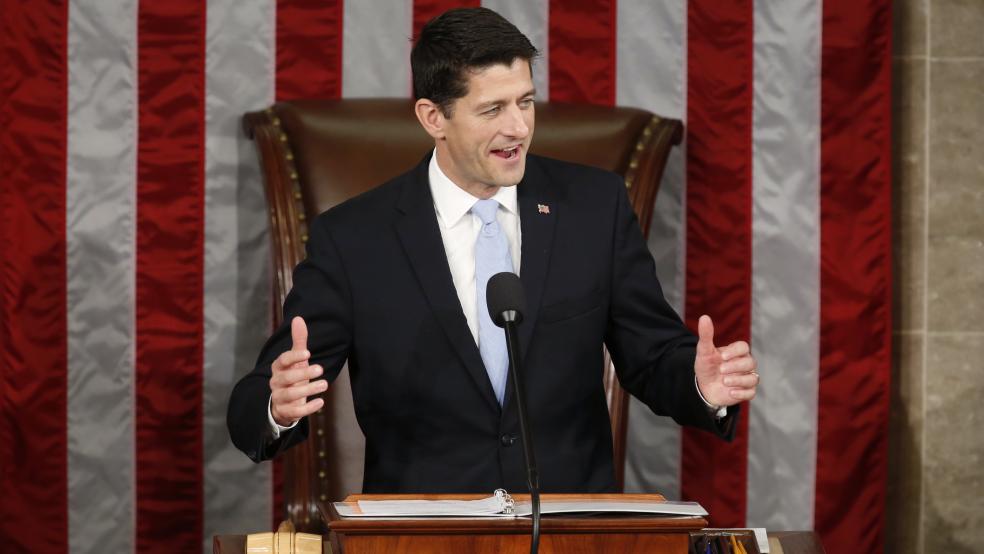As word spread Wednesday about the details of a major bipartisan agreement on tax breaks, some lawmakers touted the deal as the next step toward comprehensive tax reform – a goal that lawmakers, including House Speaker Paul Ryan, have been chasing for years.
The bill makes permanent a number of tax breaks – from business research costs to an expansion of the Earned Income Tax Credit and Child Tax Credit – that have been renewed on an annual or biannual basis for years, sometimes at the last minute.
Related: Why Is Congress Giving Away $500 Billion in Unfunded Tax Breaks?
In a press conference Wednesday morning, Ryan said that with the bill, Congress is “finally delivering on one of those tax policies we've been trying to for years to get: certainty in the tax code so that we can create more jobs.”
Ryan also joined a chorus of lawmakers who believe that the deal signals that the way has been paved for comprehensive tax reform.
“I think this is one of the biggest steps toward a rewrite of our tax code that we have made in many years, and it will help us start a progrowth, bold tax reform agenda in 2016,” he said.
Ryan wasn’t alone. Oregon Sen. Ron Wyden, the senior Democrat on the Senate Finance Committee, said the bill identifies “clear priorities” for a rewrite of the tax code in the coming years.
Related: The Army’s $30 Billion Humvee Replacement Program Just Went Off the Road
“Today is a down payment on tax reform and our work continues as we strive towards a complete overhaul of our broken tax system,” he said.
Senate Majority Leader Mitch McConnell (R-KY) made a similar prediction, saying that tax reform would be easier in the wake of the deal that was announced late Tuesday night.
At first glance, though, the idea that making a number of very popular tax breaks permanent should ease passage of a larger, more contentious bill, seems counterintuitive. Many of the provisions that the prospective deal would make permanent have been seen by some as potential sweeteners -- provisions that would help bring along reluctant lawmakers in support of a deal that will inevitably have something in it for everyone to hate.
However, the man with the most experience trying to engineer a major tax code overhaul in recent years think the lawmakers are correct.
Related: Why Congress Is Throwing in the Towel on Tax Reform
Former Michigan Congressman Dave Camp, who retired at the beginning of this Congress, said in an interview Wednesday that for several reasons, the deal being worked on this week could lead to broad tax reform down the road.
Camp, now a senior advisor for the Washington National Tax Practice at PwC, chaired the House Ways and means Committee until January 2015. Last year, he produced a comprehensive proposal for overhauling the tax code that, while it went nowhere in Congress, was widely praised for making one of the first serious efforts to rewrite the tax code in years.
“I do think this helps the chances for tax reform. Permanency is really the first step to reform,” Camp said.
The deal has been criticized by budget hawks because of its cost – it would reduce government revenues by some $500 billion over the next 10 years. But while that leaves the deal open to criticism on the grounds that it increases the already formidable national debt, it has the effect of making tax reform easier to achieve because it reduces the “baseline” revenue that the Treasury is expected to collect under the code.
Related: Why Congress Wants Sweeter Tax Breaks for Special Interests
If lawmakers go into the code and start slashing tax rates, which they would do as part of any overhaul, there would be an offsetting effort to reduce popular tax breaks, eliminate loopholes, and to broaden the tax base in order to keep revenue levels stable.
Lowering the baseline means that once lawmakers start cutting, there will be a smaller gap they need to close.
“You won’t have to raise as much money under a reformed code with some of the extenders being permanent,” Camp explained. “I would call the extenders a down payment on tax reform … I think this actually makes tax reform more doable. You’re not going to have to raise as much money.”





